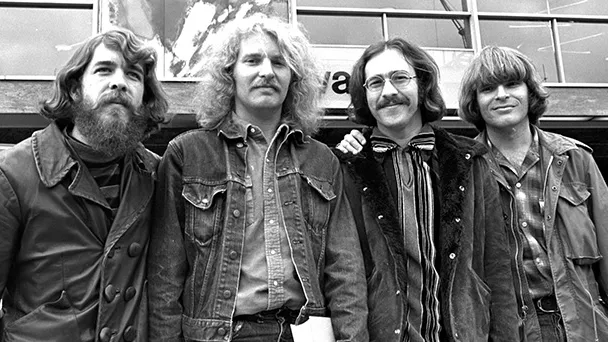The transformative potential of music is a well-documented attribute. It can be transformative on a personal level, in the space between two headphones, the confines of a bedroom or the car radio. In general, it serves our private beck and calls to brighten days in one way or another.
Likewise, publicly can do just the same. The concept of hundreds of people gathering for a boogie in a darkened room is incomprehensible until someone cranks up the speaker. In this capacity alone, it has the subversive potential to make an impact, as does all art in some regard. Music brings people together in a joyful way, and in this regard, attitudes can be changed.
As the late beat novelist William S. Burroughs said, “Artists to my mind are the real architects of change and not the political legislators who implement change after the fact.” Even in its most simple, unassuming, benign guises, music elucidates this fact by championing communion, joy and expression. Sometimes, however, the power of music can be a bit less spiritual and deliver an unmistakable call for change.
In this regard, it almost seems befitting that Creedence Clearwater Revival burst into brilliance in less time than it takes most of us to get out of bed. As frontman John Fogerty told American Songwriter about the protest classic ‘Fortunate Son’ back in 2013: “When I felt it was about ready to hatch, I went into my bedroom and just sat down to write. The whole thing happened in about 20 minutes. That just poured out.”
When asked by Rolling Stone whether any particular flashpoint inspired the song, he replied: “Julie Nixon was hanging around with David Eisenhower, and you just had the feeling that none of these people were going to be involved with the war. In 1969, the majority of the country thought morale was great among the troops, and like 80% of them were in favour of the war. But to some of us who were watching closely, we just knew we were headed for trouble.”
Both Fogerty and drummer Doug Clifford enlisted in the Army Reserves in 1966 in order to avoid being drafted and shipped to Vietnam and were discharged in 1968 after serving their time in the military. “The song speaks more to the unfairness of class than war itself,” Fogerty said. “It’s the old saying about rich men making war and poor men having to fight them.”
Remarkably Donald Trump, the son of a man whose net worth exceeded one billion dollars in 1997, used this song as part of his campaign rally, a move which John Fogerty of Creedence Clearwater Revival renounced and understandably found very “confusing”. In the same way that Bruce Springsteen’s scathing anti-Vietnam-war song ‘Born In The USA’ was misconstrued by the government as a patriot anthem, this shows the protests song’s subversive power to subtly reveal stupidity within government as well as attack it.
It would seem that if you throw in a few star-spangled lines then all other context gets lost when it comes to the powers that be. ‘Fortunate Son’ simply sounds like a protest song, its melody, production and structure form the perfect rally cry, and it’s a rallying cry that suits the hoarse tones of Fogerty down to a tee. At the height of the Vietnam conflict, this song perfectly illuminated the vast disparities in a divided America, not bad at all for something that came about quicker than an episode of Cheers.
